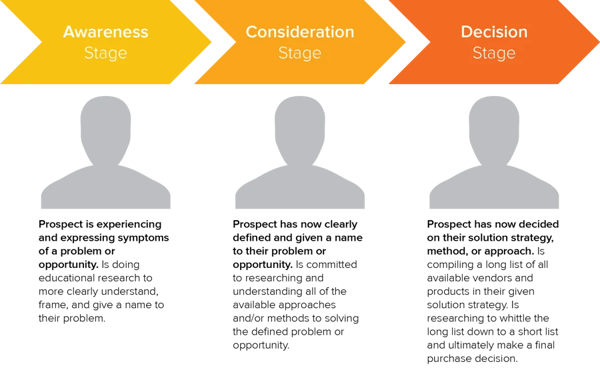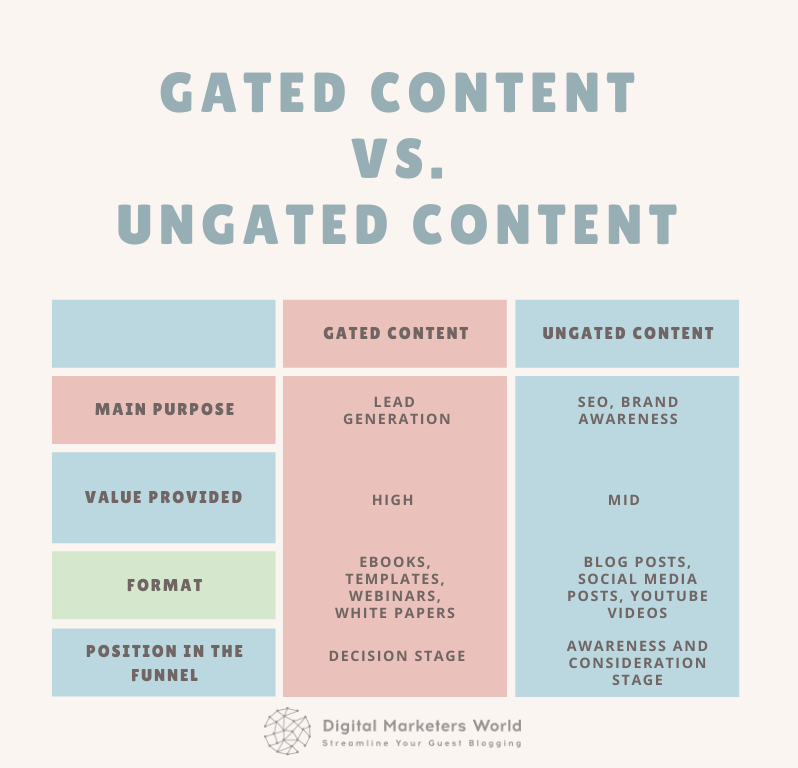Unlock the secrets of gated content and discover how to protect your valuable information from prying eyes. Dive in now!

Image courtesy of via DALL-E 3
Table of Contents
Welcome to a world where valuable information is secured behind virtual gates. In this blog post, we’ll delve into the concept of gated content—what it is, why it’s important, and how it benefits both companies and individuals. Imagine a treasure trove of knowledge waiting for you, but first, you need to provide something of value in return. That’s the essence of gated content.
What is Gated Content?
So, what exactly is gated content? It’s like a special room in a library that requires you to give the librarian something before you can enter and access the rare books inside. In the virtual world, it’s similar—gated content is special information that you can only get if you provide something valuable in return, like your email address.
Why is Gated Content Important?
Now, you might wonder, why do companies keep certain information under lock and key? Well, think of it this way—imagine you have a secret recipe for the best cookies in the world. You wouldn’t just give it away for free, right? The same goes for companies; they have valuable information that they share in exchange for something, like your email address. This way, they can provide you with top-notch content while also ensuring that the information stays secure and valuable.
Common Forms of Gated Content
When browsing online, you might come across various types of gated content that require you to provide something in return to access it. Let’s delve into some common forms of gated content you may encounter.
eBooks
eBooks are digital books that cover a specific topic or provide in-depth information on a subject. They are often used as gated content because they offer valuable knowledge that people are willing to exchange their email address or other information for.
Whitepapers
Whitepapers are detailed reports or guides that delve into a particular issue, providing analysis and solutions. Companies often gate whitepapers to gather leads and offer valuable insights in return.
Webinars
Webinars are online seminars or workshops that offer a live or recorded presentation on a topic. They are valuable gated content as they provide an interactive and educational experience for participants.
Templates
Templates are pre-designed documents or tools that help users with specific tasks, such as creating a resume or designing a marketing plan. Companies often gate templates to provide users with practical resources in exchange for their information.
How to Access Gated Content
Accessing gated content is a simple process that allows you to unlock valuable information in exchange for providing some basic details. Here’s how you can access gated content:
Filling Out a Sign Up Form
When you come across gated content, you will often see a sign-up form that asks for your information. This form may require you to enter details such as your name, email address, and sometimes other relevant information. By filling out this form, you are essentially exchanging your information for access to the content.
Why Provide Personal Information?
Providing your personal information, like your email address, is a common practice when accessing gated content. Companies use this information to send you updates, newsletters, or future content that may interest you. It also helps them understand their audience better and tailor content to suit your preferences.
Benefits of Gated Content
When it comes to accessing valuable information online, gated content plays a crucial role in providing exclusive insights and expert knowledge. Let’s explore the benefits of gated content and how it can offer users a unique advantage.

Image courtesy of blog.hubspot.com via Google Images
Exclusive Information
One of the main benefits of gated content is that it often offers information that is not readily available elsewhere. Companies may choose to gate content that contains insider secrets, industry trends, or data that is highly sought after. By providing your email or other information in exchange for this exclusive content, you gain access to valuable resources that can enhance your knowledge and skills.
Expert Knowledge
Gated content is frequently created by industry experts, thought leaders, and professionals who have in-depth knowledge and experience in their field. By accessing this content, you are learning from the best in the business. Whether it’s a webinar hosted by a renowned speaker or a whitepaper written by a subject matter expert, gated content allows you to tap into expert knowledge that can help you grow and succeed.
Valuable Insights
By engaging with gated content, you can gain valuable insights and tips that can have a significant impact on your personal or professional life. Whether it’s learning new strategies to grow your business, discovering innovative techniques to improve your skills, or staying ahead of industry trends, gated content provides valuable information that can help you stay informed and make informed decisions.
Why Companies Use Gated Content
Companies use gated content for several important reasons. Let’s explore why businesses choose to hide some of their valuable information behind gates.
Lead Generation
One key reason why companies use gated content is for lead generation. By offering valuable content in exchange for contact information like an email address, companies can identify potential customers who are interested in their products or services. This helps them grow their customer base and reach out to new leads.
Collecting Customer Information
Another reason companies use gated content is to collect valuable customer information. By asking for details like email addresses, companies can build a database of potential customers. This allows them to personalize their marketing efforts, send targeted messages, and tailor their products or services to meet customer needs.
Market Research
Companies also use gated content to conduct market research. By gathering information from users who access their gated content, companies can gain insights into customer preferences, behaviors, and trends. This data helps companies better understand their target audience, make informed business decisions, and stay competitive in the market.
Creating Your Own Gated Content
Creating your own gated content can be a rewarding way to share valuable information with your audience. Here are some steps to guide you through the process:

Image courtesy of digitalmarketersworld.com via Google Images
Identifying Your Value Offer
Before you can create gated content, you need to identify what valuable information or resources you can offer to your audience. Consider what expertise or unique insights you can provide that would be beneficial to your readers.
Setting Up an Opt-In Form
Once you have determined your value offer, you will need to set up an opt-in form where people can provide their information in exchange for access to your content. This form typically collects essential details such as a name and email address.
Delivering Your Content
After someone has filled out the opt-in form, you need to decide how you will deliver your gated content. This could involve sending an email with a download link, providing access to a members-only section of your website, or any other method that works for you and your audience.
Ethics of Using Gated Content
When it comes to using gated content, there are important ethical considerations to keep in mind. Let’s explore the key principles that should guide how gated content is created and utilized.
Respecting Privacy
Respecting privacy is crucial when asking people to provide their personal information in exchange for gated content. It’s important to ensure that this information is handled securely and not shared with third parties without consent. By respecting privacy, companies can build trust with their audience and create a positive experience for users.
Building Trust
Building trust is essential in the use of gated content. By being transparent about what information is being collected and how it will be used, companies can establish credibility and foster trust with their audience. Honesty and openness in the process of accessing gated content help create a trustworthy relationship between companies and users.
Offering True Value
Ensuring that gated content offers true value is key to ethical use. Companies should strive to provide content that is valuable, relevant, and beneficial to the user. By delivering on the promise of valuable content, companies can demonstrate their commitment to providing a positive user experience and build loyalty with their audience.
Summarizing Key Points
Gated Content: Gated content is special information that people must provide something, like their email address, to access. It is valuable and secured to ensure its exclusivity.

Image courtesy of www.linkedin.com via Google Images
Benefits and Uses
Recap of Gated Content: Gated content is like a treasure chest of valuable information that companies protect. To open it, you need to provide something in return, often your email address or other personal information.
Benefits and Uses: Gated content offers exclusive information that can’t be found elsewhere. It provides expert knowledge from industry professionals and valuable insights that can benefit individuals accessing it.
Want to turn these SEO insights into real results? Seorocket is an all-in-one AI SEO solution that uses the power of AI to analyze your competition and craft high-ranking content.
Seorocket offers a suite of powerful tools, including a Keyword Researcher to find the most profitable keywords, an AI Writer to generate unique and Google-friendly content, and an Automatic Publisher to schedule and publish your content directly to your website. Plus, you’ll get real-time performance tracking so you can see exactly what’s working and make adjustments as needed.
Stop just reading about SEO – take action with Seorocket and skyrocket your search rankings today. Sign up for a free trial and see the difference Seorocket can make for your website!
FAQs
Why Do I Have to Provide My Email?
Companies ask for your email in exchange for gated content because it allows them to stay in touch with you. By providing your email, you give them a way to send you updates, special offers, and more valuable content in the future. It helps them build a relationship with you and keep you informed about their products or services.
Is Gated Content Safe?
Yes, gated content is safe to access. Companies take your privacy and security seriously, and they have measures in place to ensure that your personal information is protected. When you provide your email or other details to access gated content, reputable companies use encryption and other technologies to keep your data safe from unauthorized access.
Can I Create Gated Content Too?
Absolutely! Creating your own gated content can be a great way to share valuable information with your audience and grow your email list. Think about what unique knowledge or resources you can offer, set up an opt-in form to collect email addresses, and then deliver your content to those who sign up. It’s a fantastic way to engage with your audience and provide them with exclusive content.







